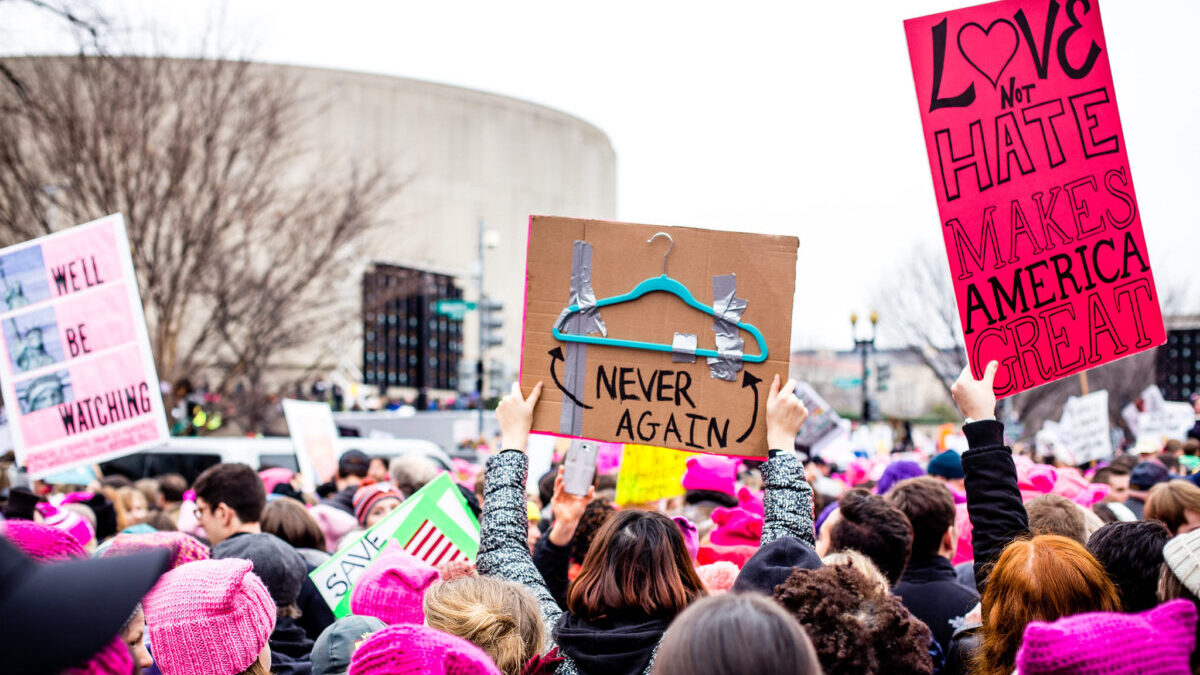
The impending change in the federal abortion landscape with the Dobbs v. Jackson Women’s Health Organization case promises plenty of added legislative battles over abortion, including efforts to curtail the epidemic of chemical abortion.
Exposing abortion as lethal violence towards innocent people and abolishing it as such is the fight of our lifetime, and knowing exactly who (or what) that fight is against is mission-critical.
In the nearly five decades that unrestricted abortion has been legal in the United States, pro-abortion sloganeering has explored many avenues, sheltered safely in the realm of misdirection and ambiguity. To defend abortion honestly requires a fairly stark deviation from the standard moral compass that requires we protect the weak and helpless. Hence, vague propaganda like “reproductive rights,” “never again,” “no uterus, no opinion,” and “my body, my choice” became mainstays over the years for Women’s Marchers and angsty college students alike.
But old slogans have been increasingly joined by a new fellow: “F-ck them kids.” Signs with the crass message were spotted at Women’s Marches nationwide in 2021, and again at campus protests against Students for Life of America President Kristan Hawkins during a speaking tour visit to the University of San Diego in the fall.
It’s easy to write these off as a few rage-filled outliers. But a recent Pew Research study suggests this hateful new addition to the pro-choice mantra family is grounded in a depressing reality; “childless” Americans flat-out do not want kids. Like, ever.
Surveys of the Selfish
Along with the rise of the term “childfree” (reducing the idea of children to burdens), Pew is finding that an unprecedented number of Americans don’t plan to have children for no reason other than that they don’t want them. The study, released in November 2021, found that a whopping 44 percent of childless 18- to 49-year-olds said they’re not too or not at all likely to have children.
Of the childless, more than half (56 percent) said they “just don’t want kids.” Another 74 percent of those who have kids said they don’t plan to have more.
Other polling hones in further on specifics, with one outlet noting, “3 in 5 childless millennials say kids are too expensive” and “they want to focus on their career.” Mic.com took an audience poll on why young people did not want children and received answers like, “The physical changes my body would go through with the pain of birth is not appealing at all to me,” “With the way I want to live my life, kids would get in the way,” and “I don’t want kids because they’re a f-ckton of work.”
A desire to remain childless doesn’t exactly explain the bitter vitriol that staunch “F-ck them kids” abortion supporters seem to harbor towards children. Perhaps Pew ought to explore that dark enigma next. Nevertheless, the pro-life movement now faces the challenge that reasons for abortion seem to have shifted towards undisguised selfishness, laziness, careerism, and contempt for children, versus the older data that showed women were choosing abortion for reasons of circumstance, such as finances, relationship trouble, coercion, or health concerns.
De-Stigmatizing Children
If Roe v. Wade is indeed reversed this summer, the right to regulate abortion will be returned to each individual state. Nearly half of states are projected to ban abortion, meaning the pro-life communities in those states will be busy offering assistance to women who would’ve otherwise found themselves at Planned Parenthood. Now, on top of those not insignificant duties, pro-lifers are set with the task of de-stigmatizing children.
When attempting to appeal to a population of self-interested young adults, perhaps the most compelling approach is indeed an appeal to self. Rabid abortion supporters, “anti-natalists,” and other child-averse groups may have their minds most effectively changed on the issue via data that conclude a positive outcome for parents.
A lot of research on parents is very nuanced, with many studies on “parental happiness” presenting more than a few flaws (most notably, an inflated definition of happiness itself as the end-all, be-all of human existence). Writing for The Atlantic, Paul Bloom squashes this horde of deficient parental happiness studies:
there’s more to life than happiness. When I say that raising my sons is the best thing I’ve ever done, I’m not saying that they gave me pleasure in any simple day-to-day sense, and I’m not saying that they were good for my marriage. I’m talking about something deeper, having to do with satisfaction, purpose, and meaning. It’s not just me. When you ask people about their life’s meaning and purpose, parents say that their lives have more meaning than those of nonparents. A study by the social psychologist Roy Baumeister and his colleagues found that the more time people spent taking care of children, the more meaningful they said their life was—even though they reported that their life was no happier.
America would benefit from more babies, and rejecting the furtherance of our species harms us all. The United States has been riding a downward spiral of population since before Covid, having seen record-low birth rates each of the last five consecutive years. Right now, we rest below the replacement rate.
Happiness, selfishness, and procreative aversion aside, the most pressing issue at hand is the rate at which Americans are killing offspring as opposed to not conceiving them at all.








